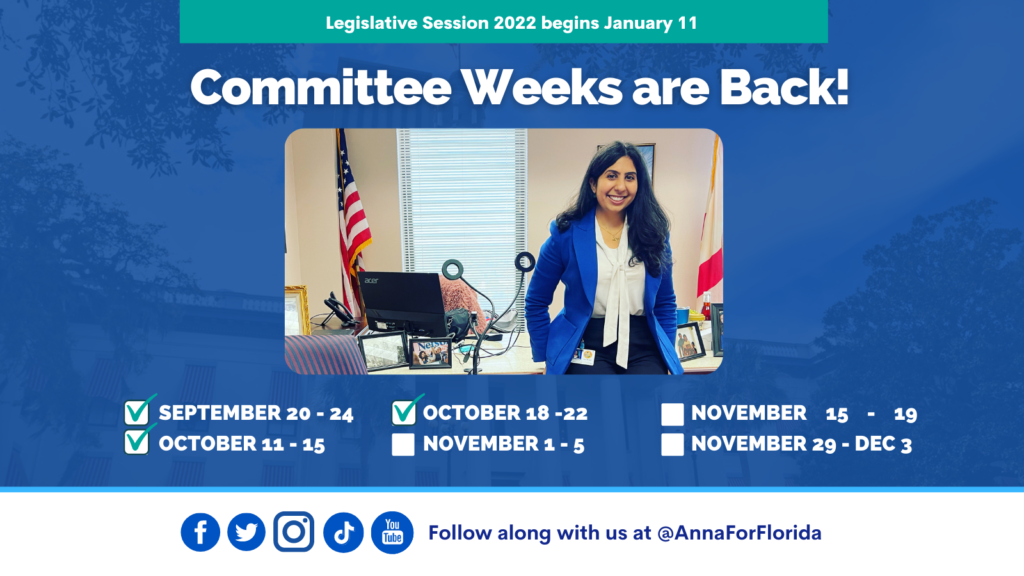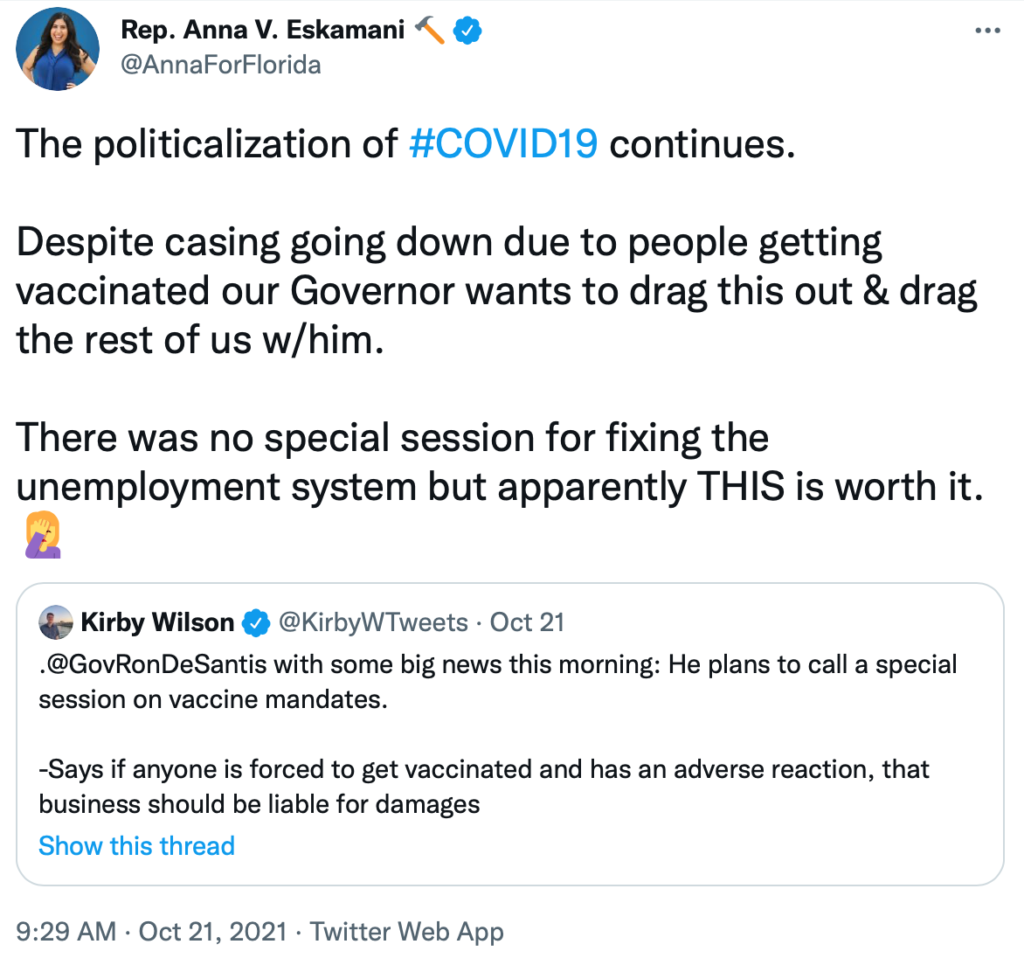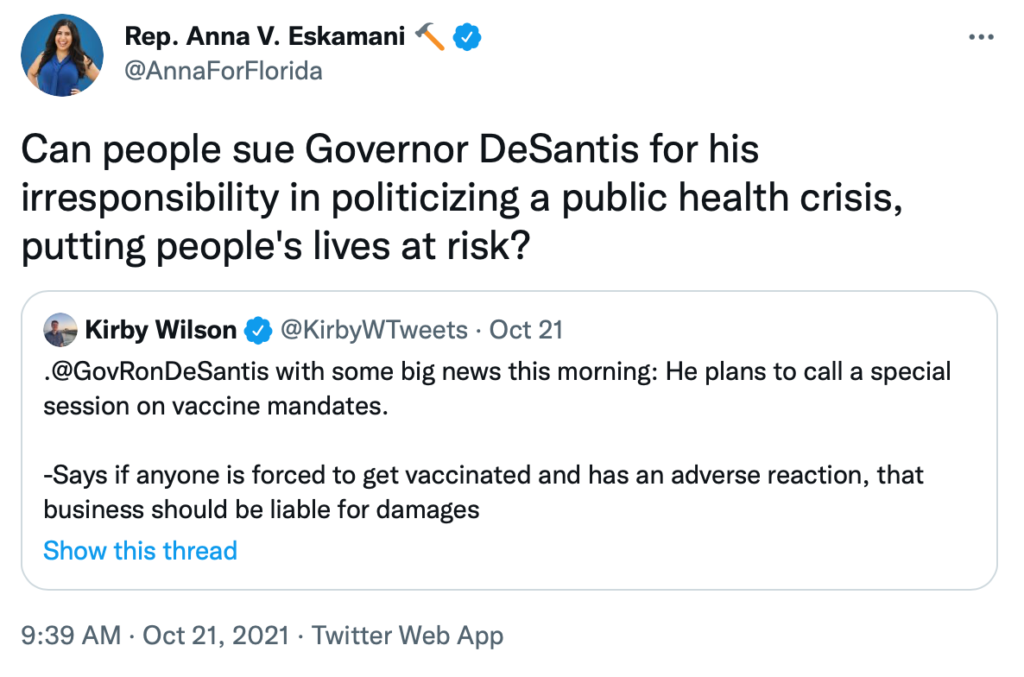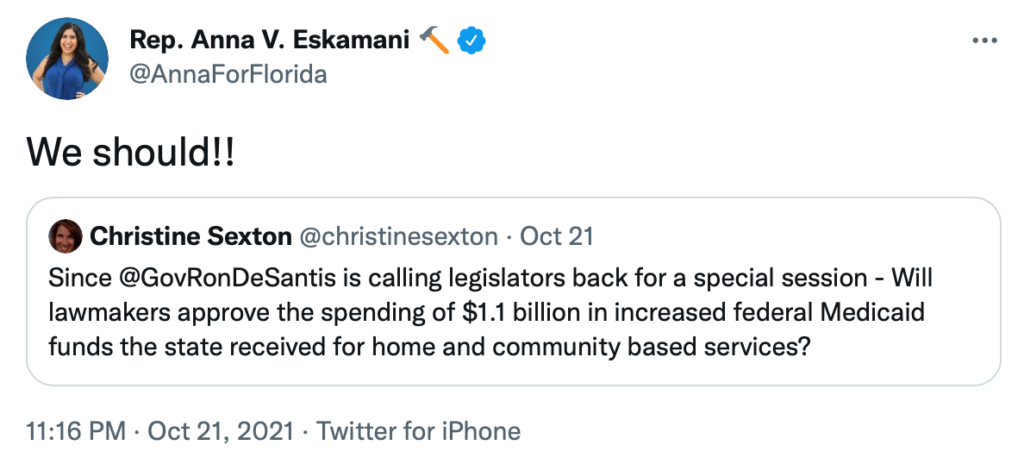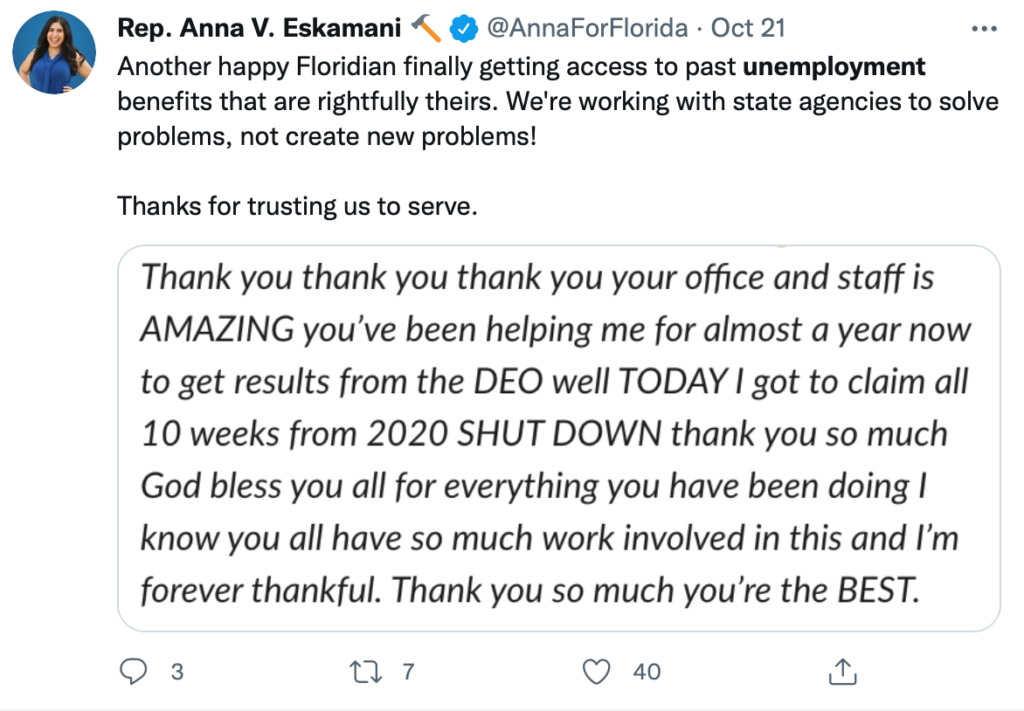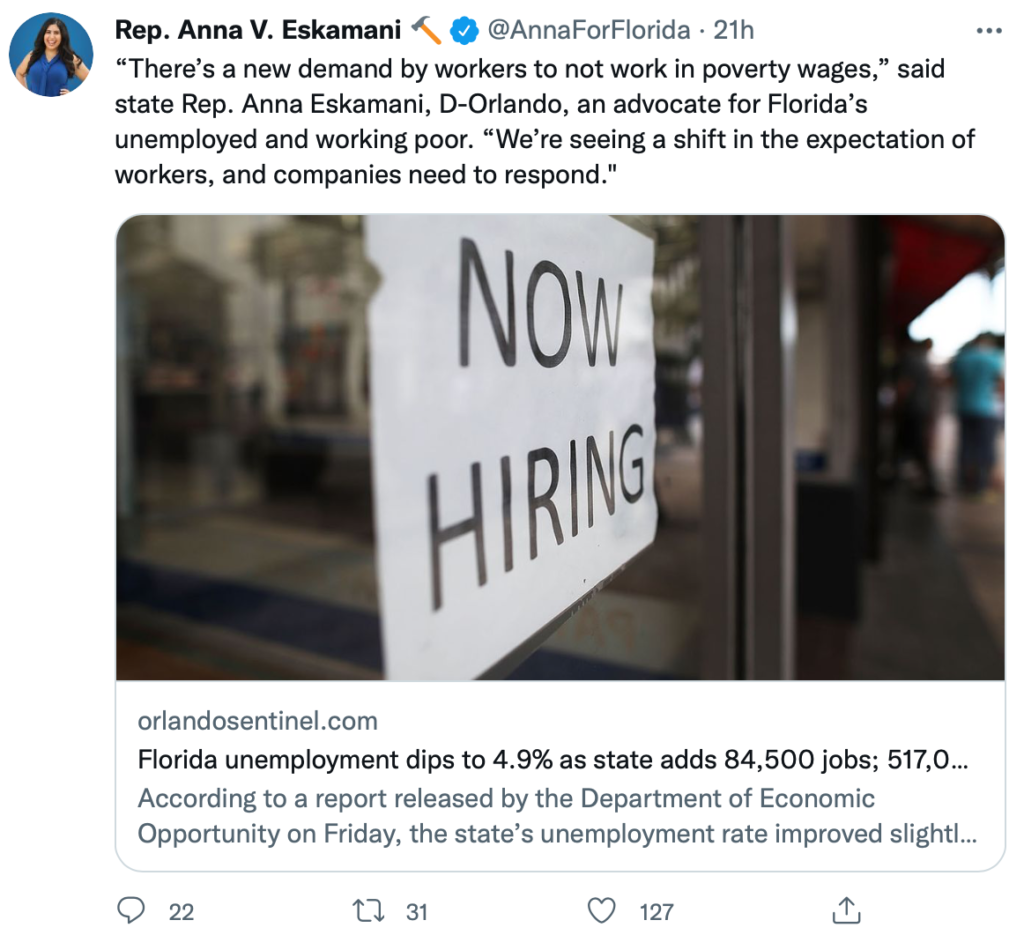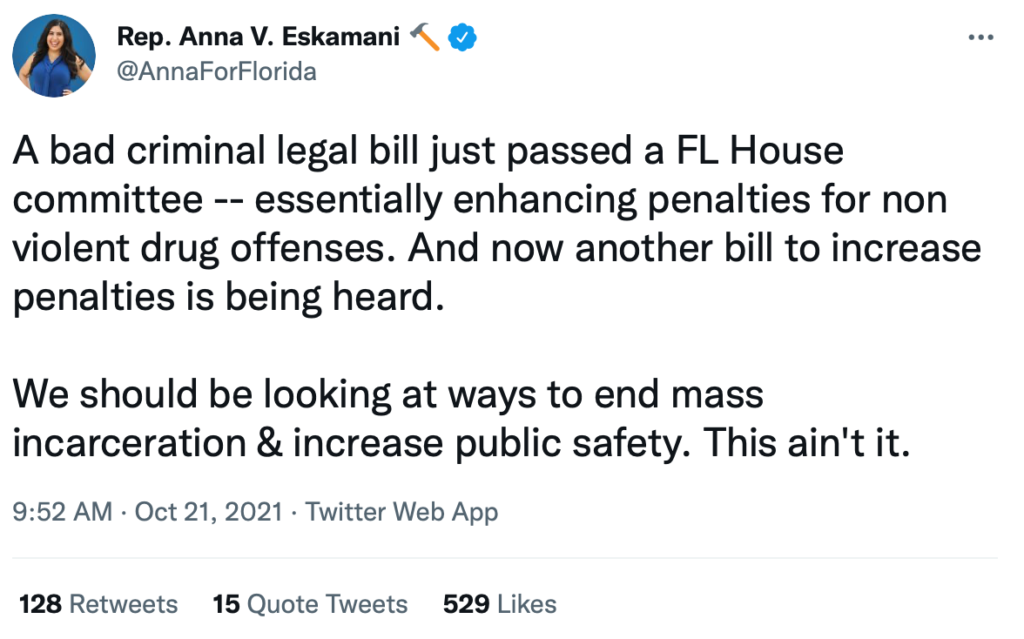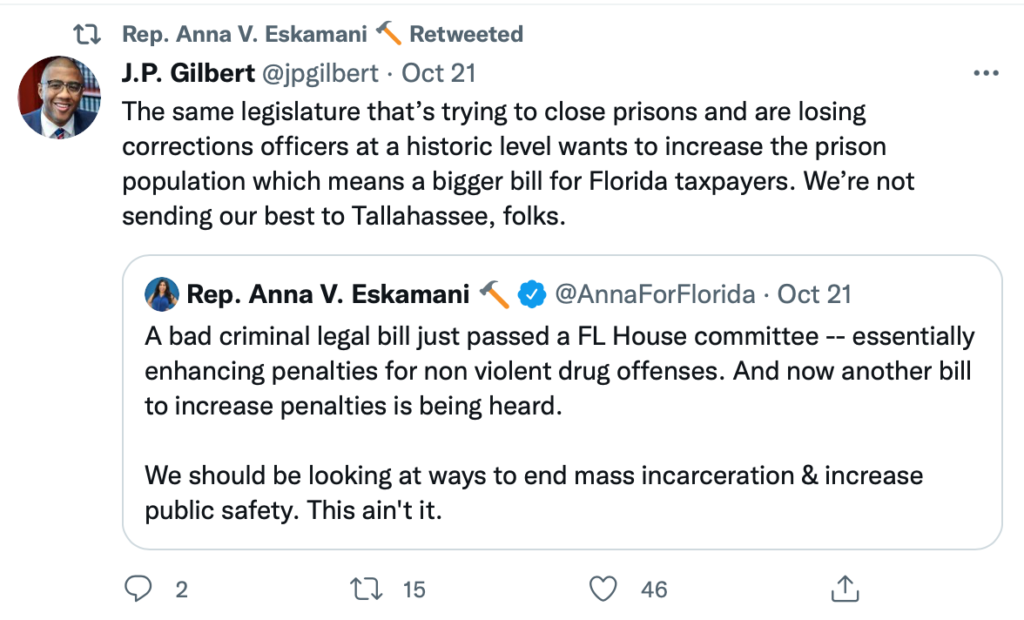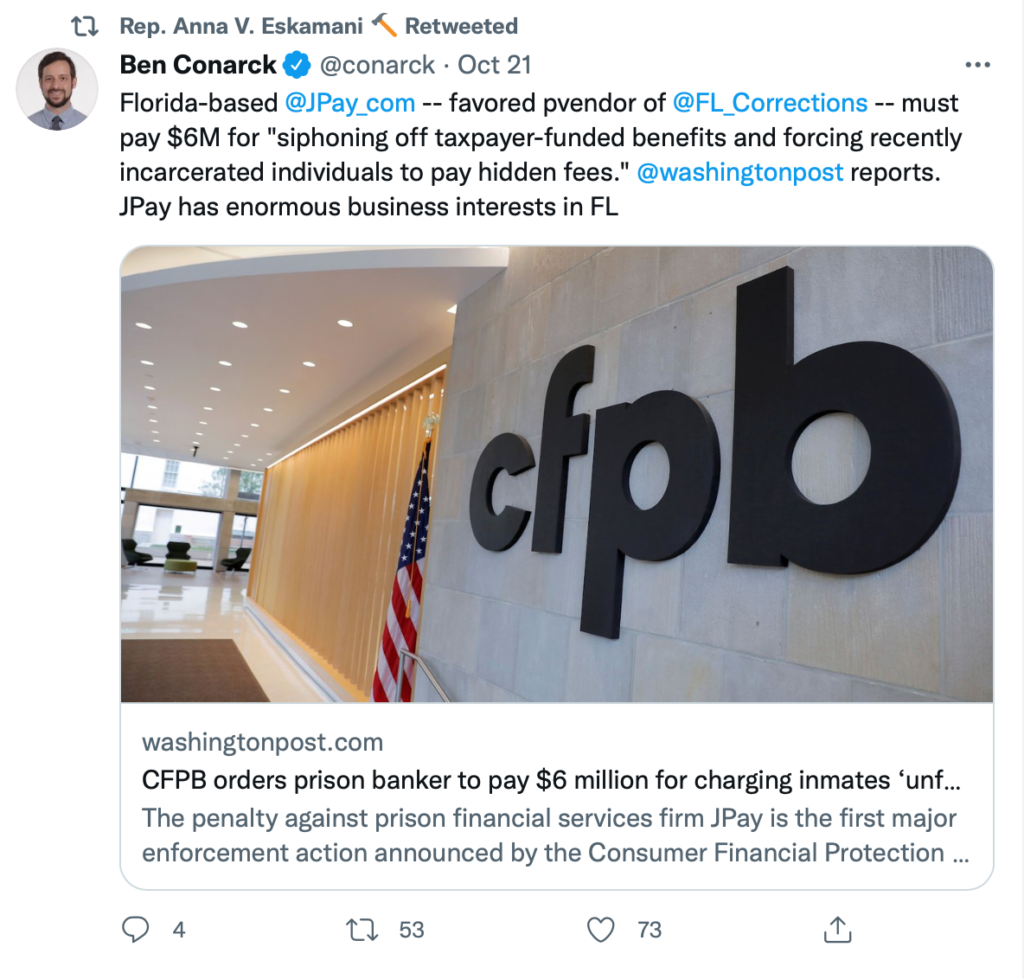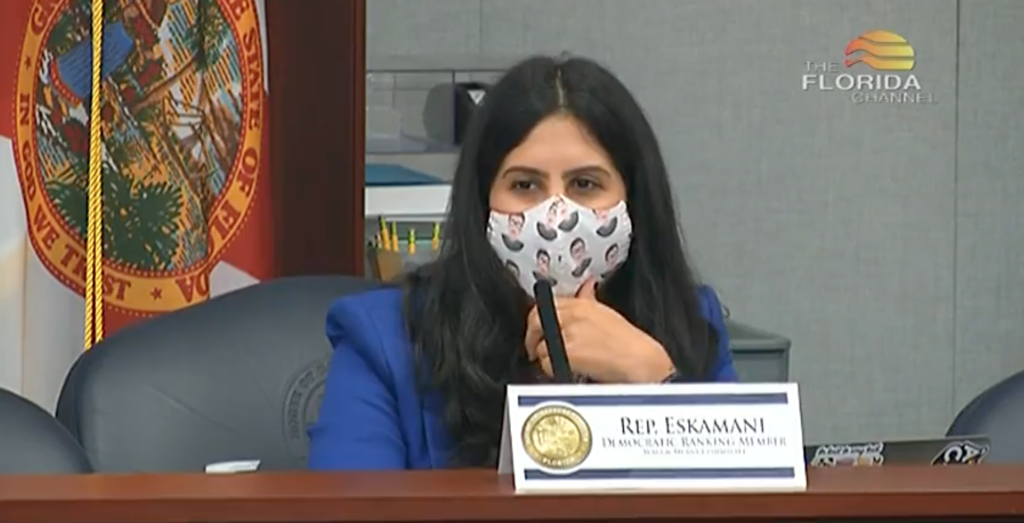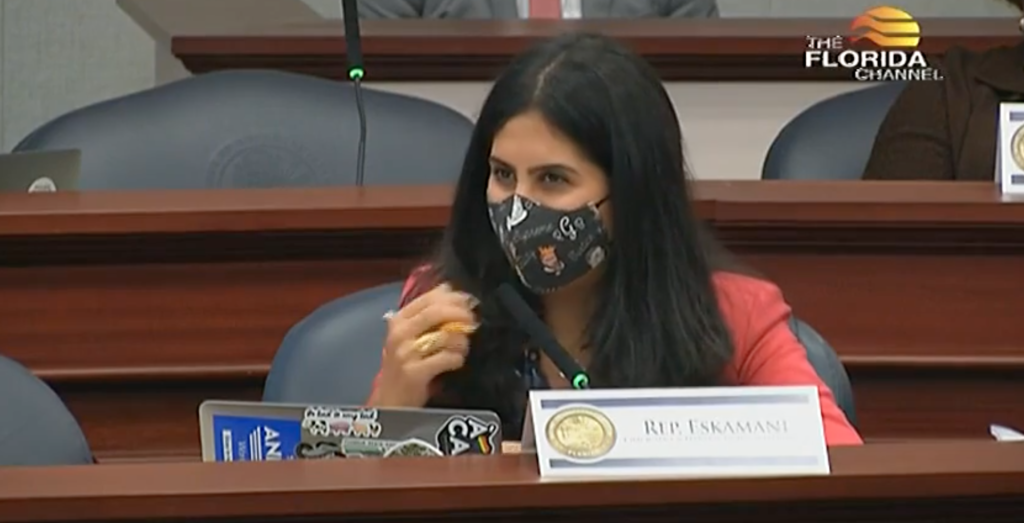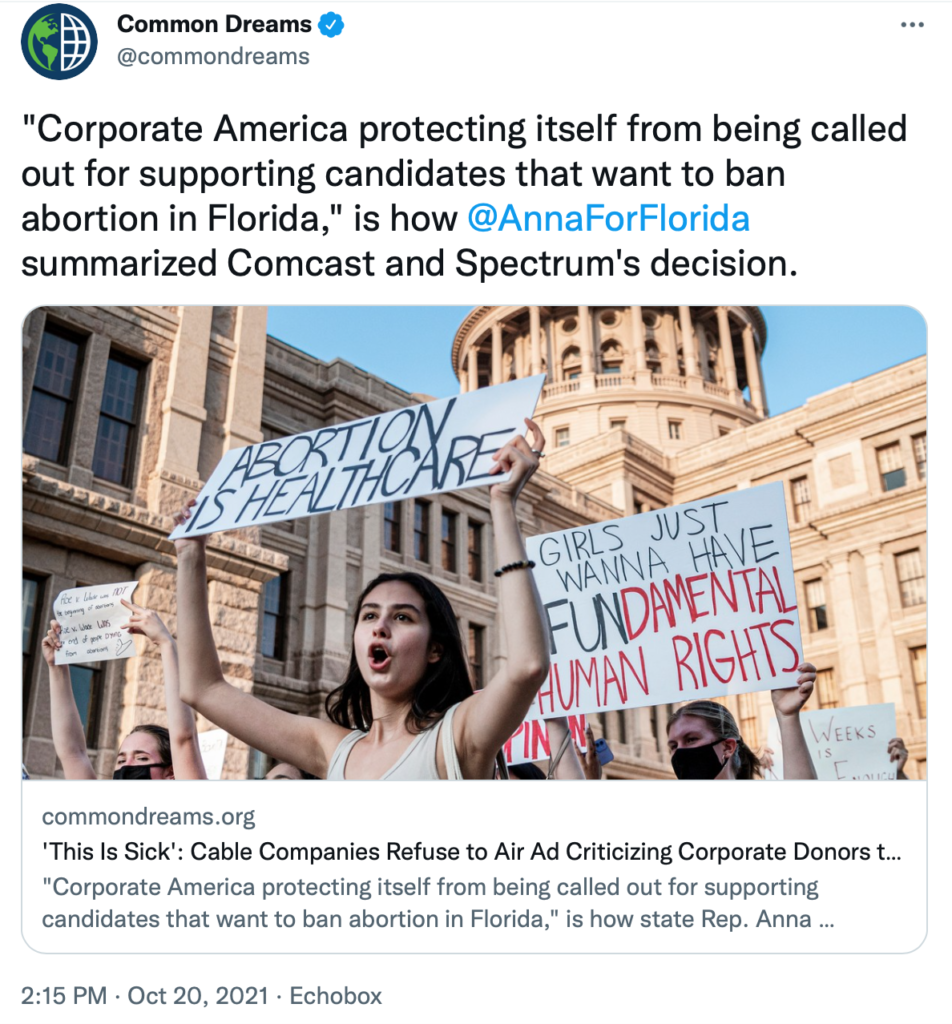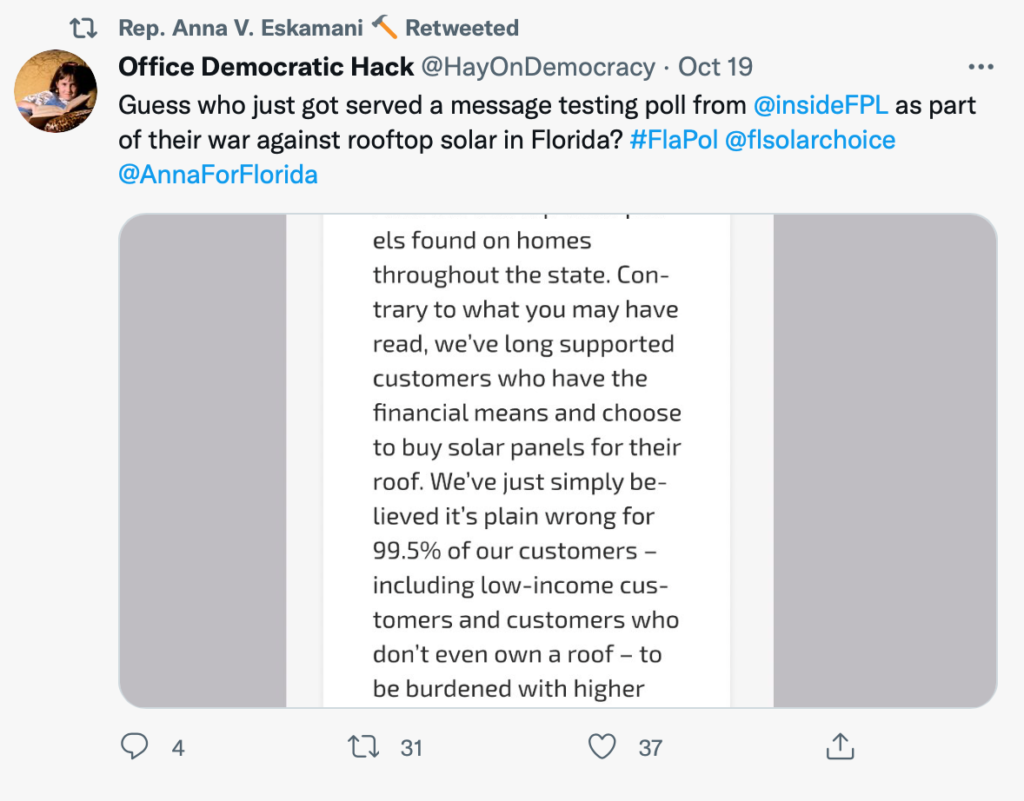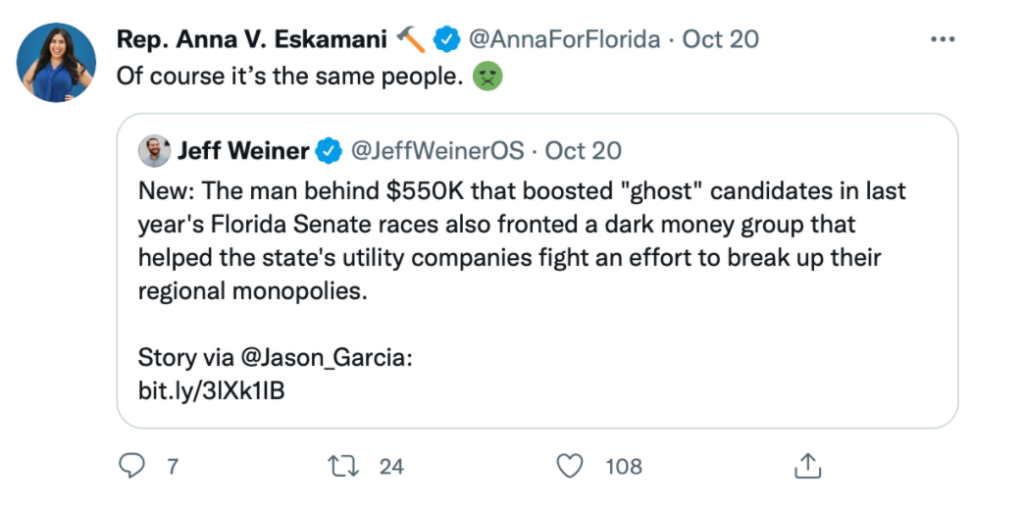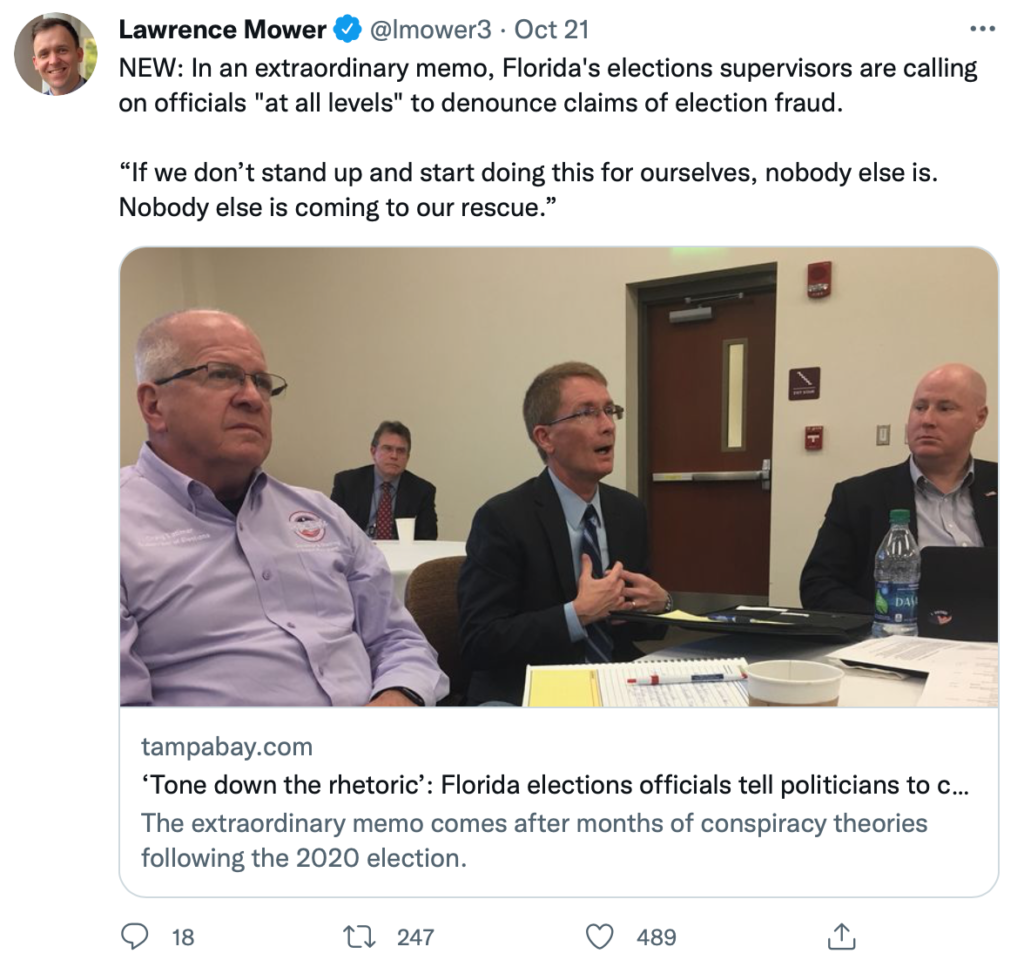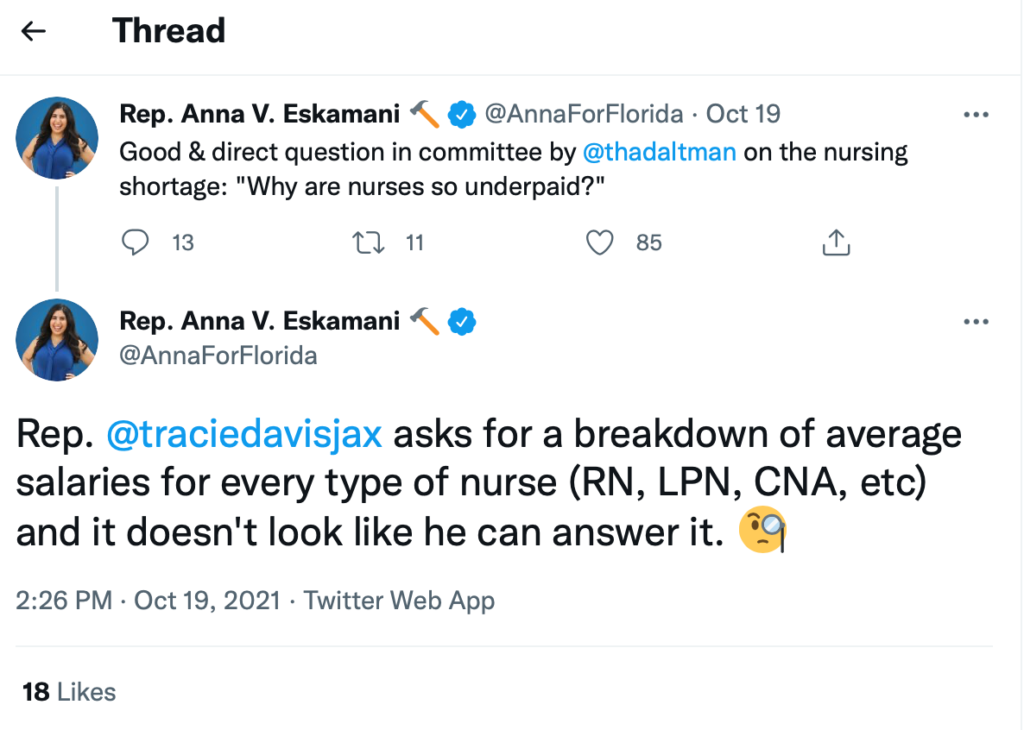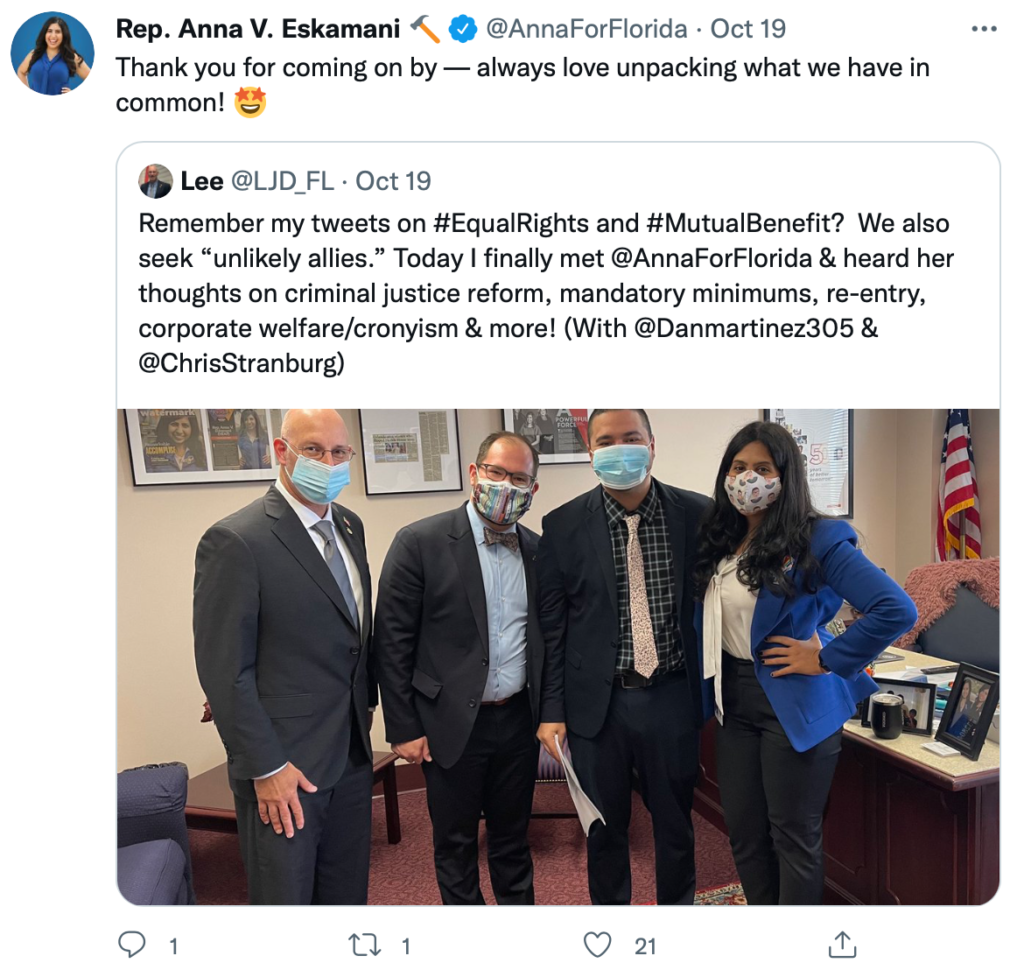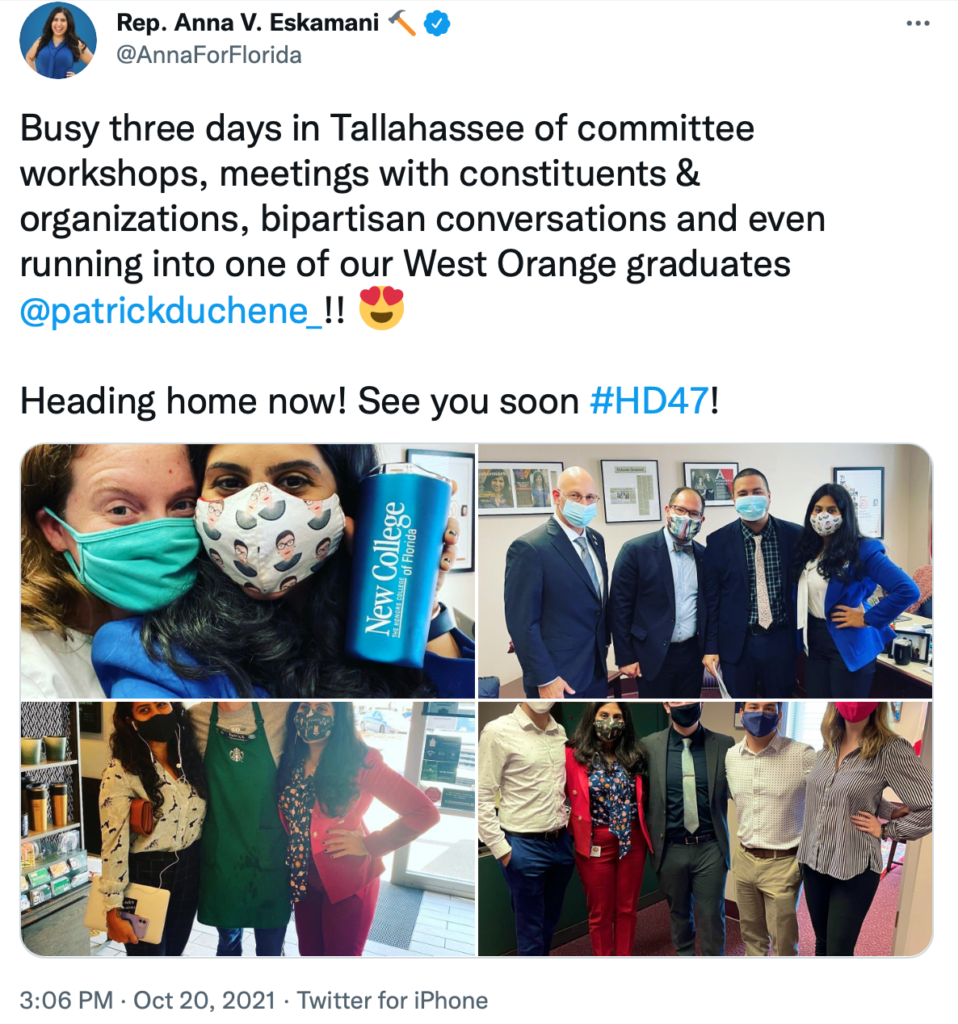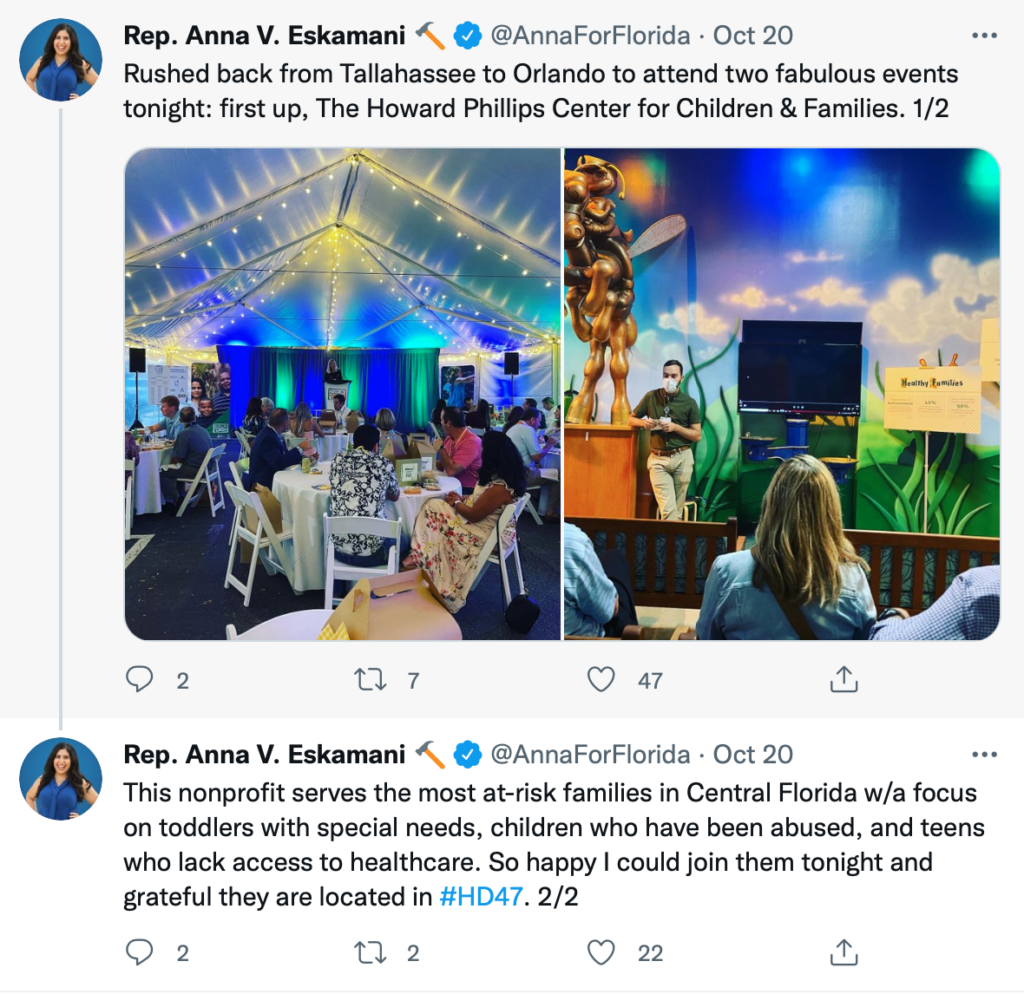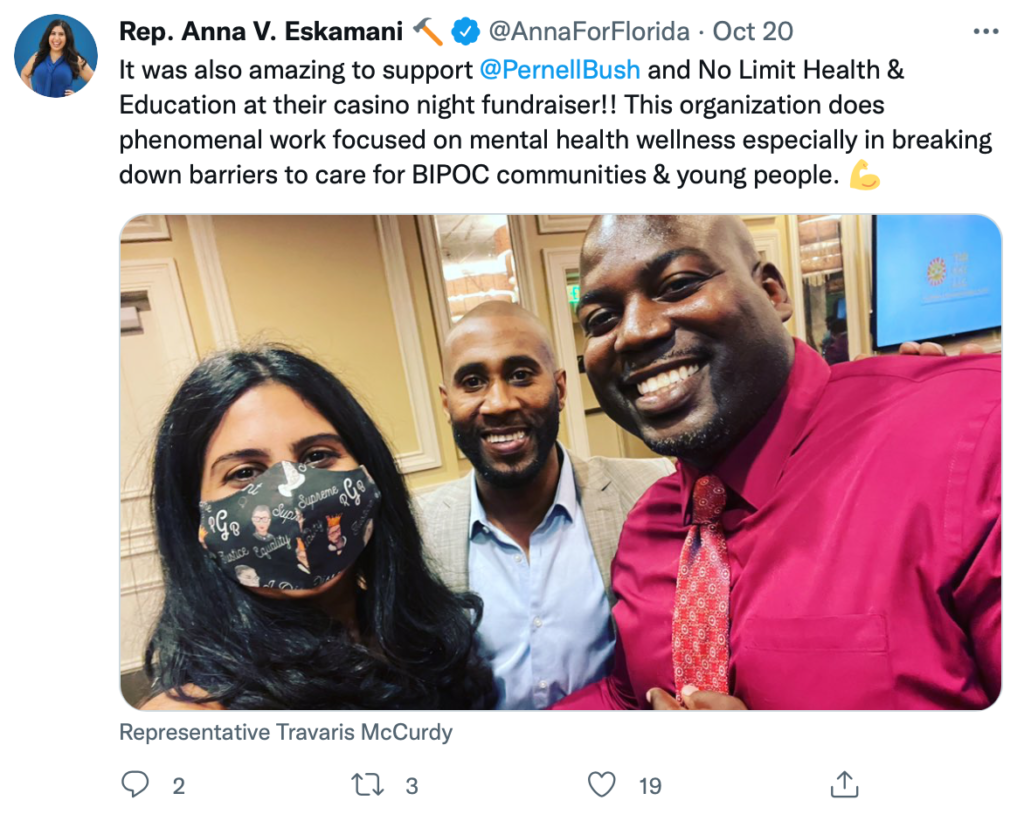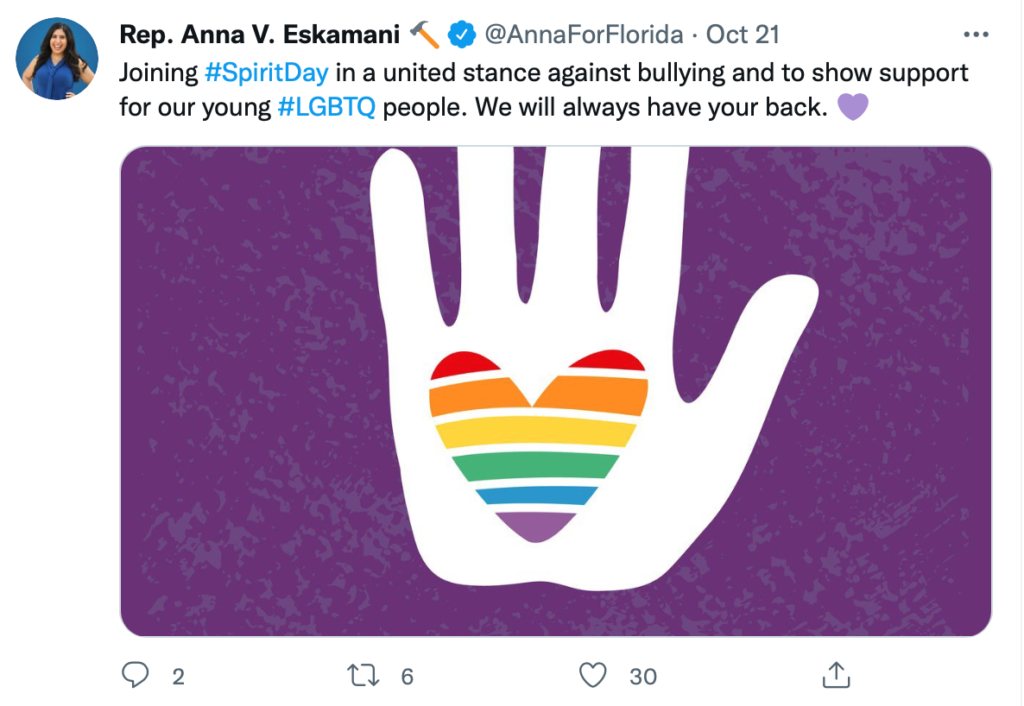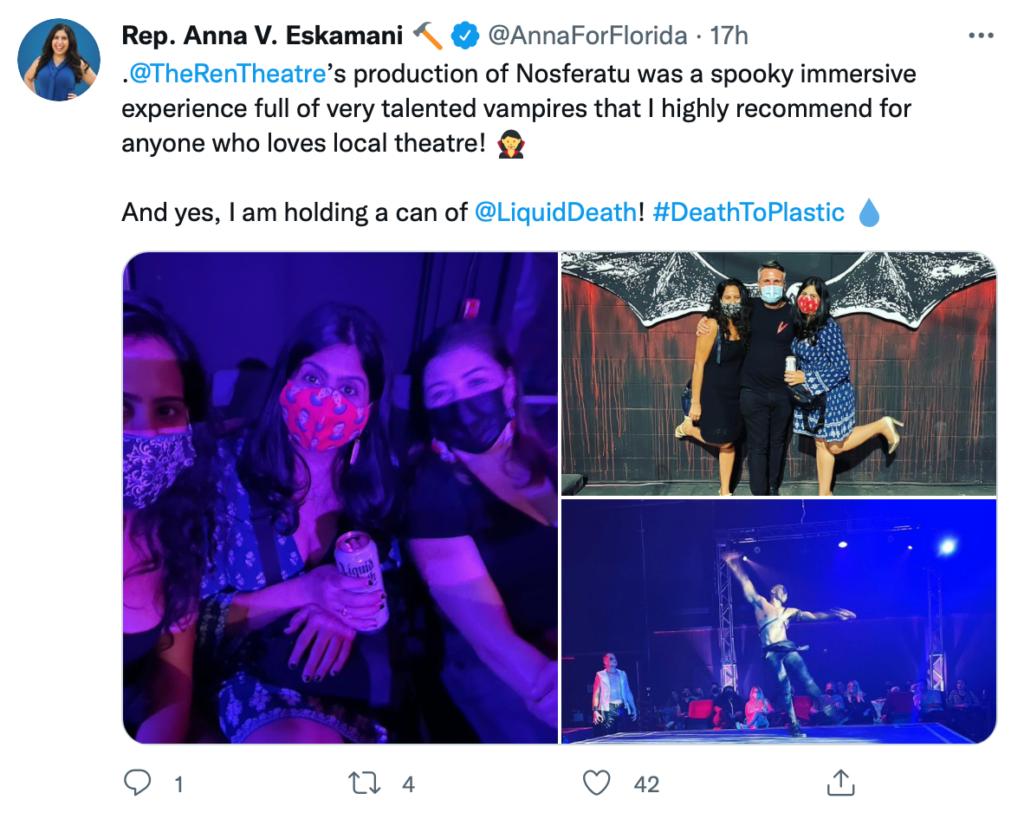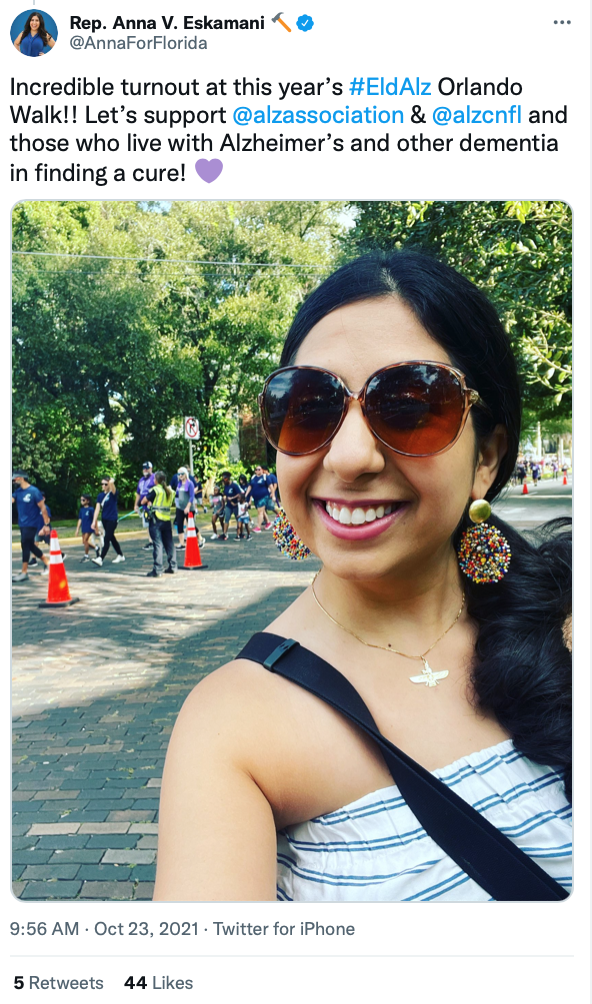Dear Friend,
Last Thursday we wrapped up Week 3 of Committee Meetings ahead of the 2022 Legislative Session! Scroll down to see what went down in your State Capitol.
Remember: Our Legislative Updates are thorough, but will never be all encompassing. Be sure to keep up to date with us in real time via Facebook, Instagram, Twitter, and YouTube. You can also watch Committee Meetings live at The Florida Channel.
Onward,
Rep. Anna V. Eskamani
Governor Calls For Special Session
Florida Gov. Ron DeSantis refused to call a special session last year to fix a broken unemployment that was failing hundreds of thousands of Floridians and robbing them of the money they needed to feed their families and keep roofs over their heads. He refused to call special sessions to help renters facing evictions or small businesses struggling to stay open.
But employers trying to make their communities safer and finally end the COVID19 pandemic? Now that’s an emergency that our wannabe-Trump governor thinks must be addressed.
DeSantis announced last week that he will call a special session to prevent local governments and government agencies from requiring their employees be vaccinated against COVID19 pandemic. The governor also wants to punish private-sector businesses who make their workers get vaccinated, by doings like stripping them of liability protections and exposing them to more civil lawsuits.
It should go without saying that these are reckless and dangerous ideas that will only prolong this awful pandemic, leading to more hospitalizations and deaths and exacerbating the damage to our economy. But here’s the thing: Our Governor’s only concern is for his political future, and he thinks that waging war against public health and science is his best hope of appeasing his base and winning the 2024 Republican nomination for president.
In just the past week, DeSantis has vowed to prevent employers from having vaccinated workforces. He had his surgeon general tell half-truths and lies about vaccine safety, breakthrough cases and the efficacy of masks. And promised to deliberately thwart efforts to protect local school officials who have been threatened by anti-mask protestors in an obvious attempt to scare school leaders into dropping mask requirements.
Meanwhile, the Tallahassee Republicans who rule the Florida Legislature are already planning to use DeSantis’ absurd special session as an opportunity to further reward the big corporations who finance their campaigns.
Within hours of DeSantis’ call for a special session, House Speaker Chris Sprowls and Senate President Wilton Simpson announced that they wanted to use the session to withdraw Florida from the U.S. Occupational Safety and Health Administration – the federal agency that protects workers from unsafe working conditions and exploitive employers. Not only is this another reckless and dangerous idea, it would also cost Florida tens of millions of dollars since we’d have to set up a brand new regulatory system.
We’ll do everything we can to fight against these bad ideas and for public health and Florida workers.
But we’ll also use this special sessions to champion real solutions to help everyday Floridians.
For instance, the federal government recently approved an extra $1.1 billion in Medicaid funding to help cash-strapped and overwhelmed group homes and other providers helping to care for people with developmental and intellectual disabilities. But the DeSantis administration still hasn’t passed that money on to providers.
We’ll fight to make sure that money gets out the door as quickly as possible so that some of our most vulnerable Floridians get the services they need.
Ending Enhanced Unemployment Benefits Early Accomplished Nothing But Cruelty
Florida’s unemployment rate ticked down slightly in September, from 5 percent to 4.9 percent. But more than half a million Floridians remain out of work – and more than 600,000 jobs remain unfilled.
It’s the latest piece of evidence that Gov. Ron DeSantis’ decision to prematurely end enhanced unemployment benefits did nothing but kick Florida workers while they were down.
Back in May, urged on by lobbyists for companies like Walt Disney World, DeSantis pulled Florida out of a federal COVID19 relief program that had been providing an extra $300 a week in unemployment benefits. The federal boost, which cost the state nothing, was crucial because Florida itself pays some of the cheapest benefits in the nation.
DeSantis cut Florida’s workers off 10 weeks earlier than workers in states led by governors who actually feel empathy for fellow human beings. The governor predicted he could financially starve Floridians into filling the state’s half a million job openings.
But in reality, DeSantis accomplished nothing but cruelty.
(Meanwhile the state’s deliberately-designed-to-fail unemployment system – which DeSantis has refused to fix – continues to be plagued by problems, from delayed payments to locking folks out of their accounts to inappropriately claiming some people have to repay money.)
We shouldn’t be surprised by this. A nationwide analysis by The Wall Street Journal found that there was no difference in job growth between states that continued to offer the enhanced federal unemployment benefits and states that ended those benefits early.
There are lots of reasons so many jobs remain unfilled. Many Floridians – particularly women – have had to stay home with children because they can’t afford childcare or don’t want to send them to schools that aren’t taking public-health precautions like masking. Others with underlying health conditions don’t want to risk exposing themselves to the virus. And some folks simply aren’t going back to jobs that don’t pay well and don’t provide health insurance and other important benefits.
What we’re seeing is a shift in the expectations of workers. And companies need to respond.
We Should Be Ending Mass Incarceration – Not Prolonging It
For years, Florida has embraced a shameful policy of mass incarceration, imprisoning rather than helping non-violent drug offenders and destroying the lives of many families – particularly Black and brown families – while enriching the private-prison companies and other vendors who profit off our criminal legal system. It’s led to a crisis in our prisons, which are overcrowded, understaffed and dangerous for everyone inside them, while doing nothing to enhance public safety.
Unfortunately, some of my Republican colleagues want to double down on this failed approach to law enforcement.
This week, the House Criminal Justice & Public Safety Subcommittee passed two more bills that will make things even worse. HB 95, sponsored by Rep. Scott Plakon (R-Longwood), would lead to longer prison sentences for people who commit non-violent drug offenses. And HB 6037, sponsored by Rep. John Snyder (R-Stuart), would make it easier for prosecutors to seek longer sentences for people who commit even low-level, non-violent property crimes.
We should be focused on ending mass incarceration, reforming our criminal legal system so that it is far to all Floridians regardless of race or wealth, and making our communities safer and more prosperous.
These bills don’t do any of those things.
And to remind us all how exploitative the prison industry is, we also learned last week that the Consumer Financial Protection Bureau has ordered JPay — a controversial Florida-based vendor that sells everything from debit cards to email service to incarcerated people — to pay $6 million for “siphoning off taxpayer-funded benefits and forcing recently incarcerated individuals to pay hidden fees.”
It probably won’t surprise you to learn that JPay is owned by a private-equity firm.
Our Committee Meetings
Three of our Committees met this week: Ways & Means Committee, Civil Justice & Property Rights Subcommittee, and Professions & Public Health Subcommittee.
During Ways & Means, our Staff Director provided us with a presentation on Florida’s most updated revenue projections. You can watch the presentation at this link and see some of the questions I asked too. My biggest concerns continue to be Florida’s up-side-down tax system and how so many Floridians are struggling to afford basic needs (like housing).
During our Civil Justice & Property Rights Subcommittee we heard from three different speakers on three main topics: Trusts, Guardianship, and Dependency. I encourage you to watch the presentations and our conversation at this link.
Finally, in Professions & Public Health Subcommittee there was a panel discussion on Optometry and Ophthalmology provided by professionals in both fields. You can watch that committee meeting here.
Corporations Try to Hide their Complicity in Abortion Bans
Last week, American Bridge 21st Century planned to launch a six-figure ad blitz — the group wouldn’t specify the exact size — in three Florida media markets to call out AT&T, Disney, and NBCUniversal for donating money to anti-abortion politicians. But local television markets won’t air the group’s ad. Read more here.
Fossil-Fuel Utilities are Fighting to Stop Floridians from Getting Solar Panels
We learned last week that corporate utility giant Florida Power & Light is launching another war against rooftop solar.
It involves a pro-consumer, pro-environment policy that FPL and other corporate utilities such as Duke Energy and Tampa Electric want to kill that makes it more affordable for Floridians to install solar panels on their homes.
The policy is called “net metering.” It sounds complicated but it’s really not. All it means is that your utility company has to pay you for the extra electricity your solar panels produce. After all, that extra electricity goes into the grid and the utility company turns around and sells it to other customers.
But FPL and the corporate utility industry hate this, because they make a bigger profit selling the power they produce from their own power plants – even though most of that power comes from burning fossil fuels, a leading cause of the climate-change crisis. (In case you’re wondering: Florida Power & Light made a $2.7 billion profit last year.)
Check out this informative and easy-to-read Twitter thread to learn more about net metering.
Because corporate utilities care far more about their profits than they do about climate change, we fully expect FPL, Duke and TECO to make another big push to get rid of net metering in Florida. And we fully expect them to fight dirty – just like when they’re working with shady dark-money groups that finance sham ghost candidates in state Senate races or bogus constitutional amendment campaigns.
But we’ll be there to fight back.
Calling Out Election Lies
Our former president and his enablers have for months been reckless, cynically and dangerously sowing doubt about the legitimacy of American elections.
These election-fraud lies and conspiracy theories – which Republican politicians in many states, including Florida, have used as cover for anti-democratic restrictions on voting – prompted an urgent plea last week from the Republicans and Democrats who oversee Florida’s elections.
The bipartisan Florida Supervisors of Elections called on public officials at “all levels of government” to denounce the many false claims made about the 2020 elections, the Tampa Bay Times reported.
“During and after the 2020 Presidential Election, the integrity of our democracy has been challenged by misinformation, disinformation, and malinformation that sows discord and undermines trust in America’s electoral process,” the supervisors wrote in their memo.
This is so important. All of us, Republicans and Democrats, have a responsibility to call out these lies for the authoritarian-like propaganda they are.
Our entire democracy is at stake. Like Marion County Elections Supervisor Wesley Wilcox – a Republican – told the Times: “You can’t continue to knock it down and expect it to survive.”
Why are Nurses so Underpaid?
One of the biggest challenges facing our hospitals, nursing homes and community health centers right now is a shortage of nurses. They didn’t have enough nurses before the COVID19 pandemic and they’re facing an even bigger gap now. One recent study estimated Florida could be short nearly 60,000 nurses statewide by 2035.
This will be one of the challenges we’ll have to tackle during the 2022 session. Representatives for from the hospital, nursing home and community health center industries met last week with the House’s Health & Human Services Committee to discuss the problem, pitching ideas (some better than others) like eliminating medical paperwork, loosening licensing and training requirements, expanding education programs and more marketing.
Some of my colleagues on the committee asked some tough questions – which the industry reps apparently weren’t prepared to answer. Namely: Why are our hospitals, nursing homes and community health centers paying our nurses so little?
Obviously, raising pay would do a to attract more people to the nursing profession. Yet the panelists weren’t able to provide basic information such as the average or median salaries for different types of nurses.
This is the sort of data we need to make good policy decisions.
Insurance: Focusing on the Needs of Our Homeowners, Renters and Small Businesses
In last week’s newsletter, we talked about the escalating problems in Florida’s property insurance marketplace, where many private insurance companies are hitting home- and business owners with enormous rate increases – or canceling their policies altogether. And we also talked about how it’s time for Florida to look elsewhere for solutions, rather than continuing to let our policies be dictated by insurance industry lobbyists whose primary concern is for their clients’ profits.
I’m intrigued by the idea of allowing our state insurance company, Citizens Property Insurance, to compete with private insurance companies all across Florida.
But this week I wanted to draw your attention to this editorial from the South Florida Sun-Sentinel which offers other interesting ideas, too.
For instance, Florida could require insurers companies to write all lines of coverage. If a company wants to sell auto insurance in Florida – one of the most profitable kinds of insurance — then they have to sell homeowner’s insurance, too.
Or if we make changes that successfully reduce fraud or costs from civil lawsuits, we could mandate that insurance companies pass those savings on to their customers.
There are lots of possibilities — when we stop focusing on the needs of insurance companies and start focusing on the needs of our homeowners, renters and small businesses.
Update on the Status of Manatees and Gopher Tortoises
Florida is experiencing an unprecedented die-off of manatees this year, with 959 documented deaths as of Oct. 1. That’s already more than any full year on record, and colder weather soon to come could bring another wave of deaths in a population that numbers between 7,500 and 10,200 along both Florida coasts, according to state estimates.
Manatee deaths this year will likely double the 593 recorded in 2020, and will far outnumber the latest five-year average of 146 deaths in Florida, according to state figures, with no end to the die-off in sight.
For Gopher Tortoises, over development has destroyed their environment and since they are a keystone species, the impact of this goes beyond one species. In fact, Gopher Tortoises support more than 350 animals and insects with their burrows. \
Relocating gopher tortoises grew as a cottage industry following enhanced protections approved in 2007 by the FWC. The rules include strict oversight of moving the long-lived reptiles from construction projects where once they could be buried alive for a fee.
More than 56,000 tortoises were relocated between 2007 and through 2020, according to FWC but there has been renewed concerns over this practice and its cost. Right now the price to relocate a Gopher Tortoise is not sustainable, with one property owner of a so-called “recipient site” charging up to $6,000 for each refugee.
Last week FWC actually provided a presentation on both the status of Manatees and Gopher Tortoises to the Florida House’s State Affairs Committee that you can watch here.
